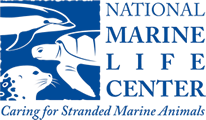The 19th Biennial Conference on the Biology of Marine Mammals

Last week I had the opportunity to attend (for my first time) the 19th Biennial Conference on the Biology of Marine Mammals organized by the Society for Marine Mammalogy. The conference took place from November 27-Dec 2nd in beautiful downtown Tampa, FL. Kicking off the conference was an icebreaker event at the Florida Aquarium on Sunday night, which sadly, I missed due to arriving in town too late to register (I did, however, make it to the aquarium the following day on a solo expedition). I spent 3 days attending informative talks about the current research being conducted by marine mammal scientists across the globe. Originally I assumed spending 6 hours a day in lectures would grow tiresome, but at the end I was disappointed at having to leave a day early to fly back home.
The majority of the lectures I attended were about health issues in marine mammals. Some topics included toxin exposure from harmful algal blooms, skin lesions in bottlenose dolphins, hair loss in Australian fur seals, hearing loss in harbor seals, and the neuroimmunological effects of translocating beluga whales in captivity. There were also lectures about conservation, behavioral ecology, and new technology being used to study marine mammals. An example of new technology used in several studies was unmanned aircraft. This was used to conduct aerial surveys of marine mammal  population distribution.
population distribution.
I attended a student affairs workshop in order to try and get a better sense of what sorts of careers are out there for recent marine biology graduates. Despite not having a masters degree or a PhD, I still found the information very useful. The workshop helped to solidify my decision to attend graduate school in the near future and what I have decided to study once I get there. I was able to meet with veterinarians and an epidemiologist during a pathology and vet medicine breakout session. While I decided that vet school it not for me, I do want to be involved in research and work dealing with marine animal health. The lectures I attended, as well as working as an intern for the National Marine Life Center made me realize that health issues are where my passion is. Health issues combine my background in marine biology, working as a veterinary assistant, and working for the NMLC. My previous degree in sociology and environmental conservation (received prior to my degree in marine biology) is also applicable because more often than not, diseases in marine animals is a direct result of human activity. Conservation and rehabilitation go hand in hand in ensuring a healthy future for marine mammals (and sea turtles too!).
Posted by Kristen S.
Kristen is a Fall, 2011 Intern at the National Marine Life Center. She recently graduated from U Mass Dartmouth with a degree in Marine Biology.

